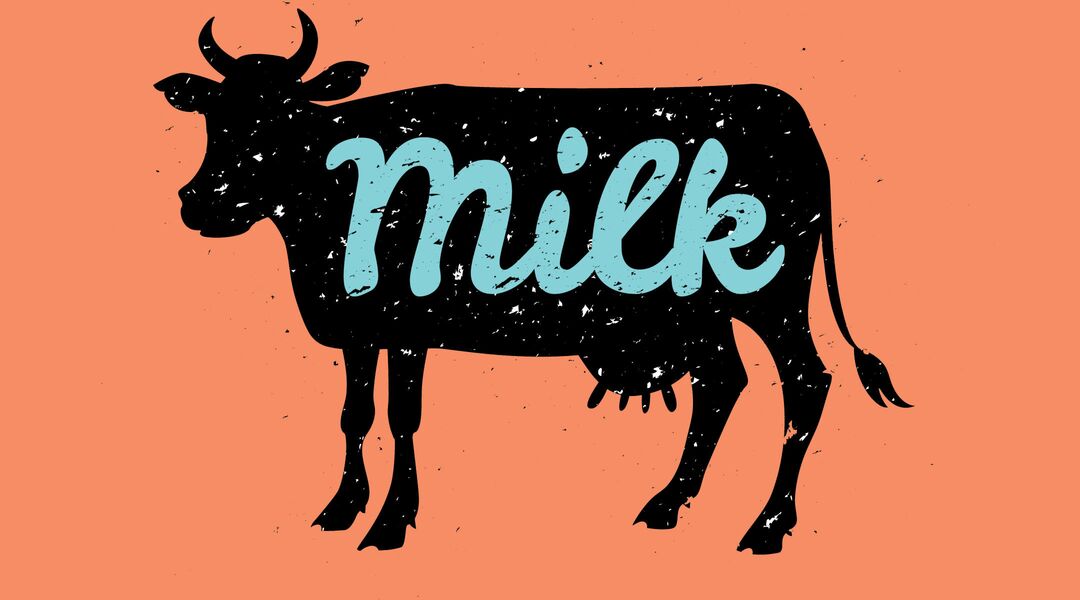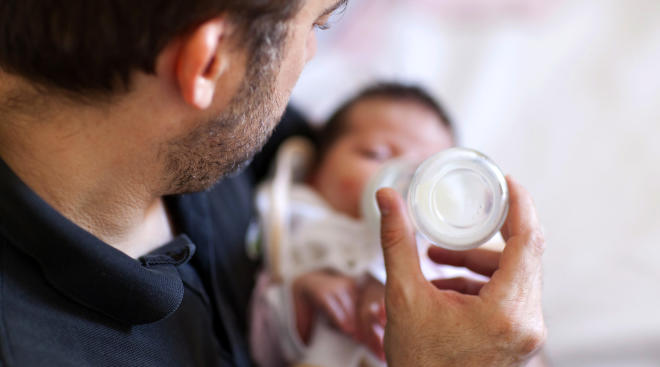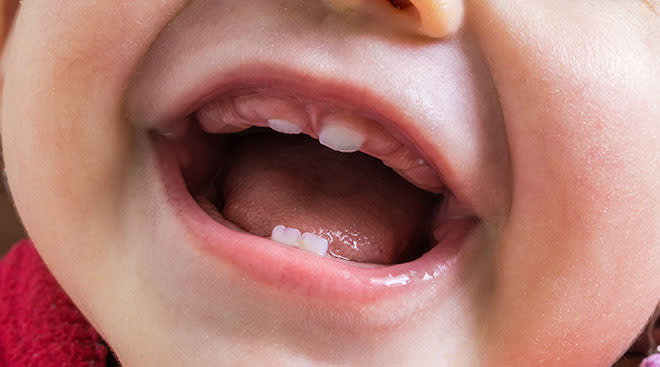Milk Protein Intolerance in Babies
What is milk protein intolerance?
“Milk protein intolerance is a condition where the gut of younger children, specifically infants, is sensitive to milk proteins,” says Mark Moss, MD, a pediatric allergist at the University of Wisconsin Hospitals and Clinics. “The result is often an injury to the gut that causes symptoms ranging from diarrhea to more frequent stools to blood in the stools.” The blood in the stools may or may not be visible to the naked eye but can contribute to anemia, or low red blood cell counts.
Babies with milk protein intolerance are almost always able to handle breast milk without difficulty—but some are sensitive to dairy in mom’s diet. If that’s the case, avoiding dairy foods while you’re breastfeeding should solve the problem.
What are the symptoms of milk protein intolerance in babies?
Typically, they’re frequent, loose stools that may be bloody. A baby with milk protein intolerance may also be fussy after feedings.
Are there any tests for milk protein intolerance?
Not exactly. Your child’s pediatrician can check baby’s blood levels and look for blood in the stools, but no one test can definitively diagnose milk protein intolerance.
Instead, knowing baby has milk protein intolerance depends on his or her medical history and a physical exam. Expect your pediatrician to ask you if (or when) milk (either cow’s milk or formula) was introduced into baby’s diet. He or she will also ask you questions about baby’s bowel habits. He or she will want to see a stool sample and may test it for the presence of blood, since it can’t always be seen. Baby may also get checked for anemia.
If you’re breastfeeding baby and it’s unclear whether he or she has milk protein intolerance, you may want to cut dairy out of your diet for a while.
How common is milk protein intolerance in babies?
According to Moss, milk protein intolerance is “very uncommon.” It’s most common, though, in kids under the age of 3. By 3 years old, 80 percent of kids with milk protein intolerance have outgrown it and can tolerate dairy products without problems.
How did my baby get milk protein intolerance?
Good question! Doctors don’t know exactly what causes milk protein intolerance, beyond the fact that it seems to be some sort of allergic reaction in the gut. There’s no evidence that milk protein intolerance is inherited and no evidence that early (or late) introduction of milk affects the development of milk intolerance.
What’s the best way to treat milk protein intolerance in babies?
If you’re breastfeeding, your best bet is to cut out all dairy until baby is weaned.
Bottle-feeding? Avoid giving baby cow’s milk. Your pediatrician can help you find appropriate substitutes, such as soy-based formula. When baby’s older, rice or soy milk can take the place of cow’s milk. Remember that milk-intolerant kids can’t handle cow’s milk at all, in any form, so don’t give him or her ice cream or cheese either, until he or she’s outgrown his or her intolerance.
What can I do to prevent my baby from getting milk protein intolerance?
You can’t prevent the intolerance, but you can prevent the discomfort and lack of nutrition that often accompany milk protein intolerance. Make sure your child gets plenty of fluids—and an appropriate milk-like substitute, if your doctor recommends it. As your child grows, you may be able to gradually reintroduce dairy.
What do other moms do when their babies have milk protein intolerance?
“One of my 11-month-old twin girls was diagnosed with a milk protein allergy at four months old. Since starting Neocate, she has been a whole new baby—much healthier and happier! As we’re approaching her first birthday, I’m getting anxious about doing the milk challenge. Our pediatric GI said to just switch her over to whole cow’s milk at a year and see how she does.”
“Asher has a severe multiple protein allergy. We won’t be switching from Neocate to cow’s milk, because his milk allergy results in anaphylaxis. Asher will be switching to Neocate Junior. Asher is also allergic to eggs, wheat, casein, peanuts, tree nuts, and soy. And many other things.”
“[My son] has been on Alimentum since he was six weeks old due to dairy allergies, and today he still can’t have any dairy products. He also reacts to eggs. He’s currently drinking coconut/almond milk.”
Please note: The Bump and the materials and information it contains are not intended to, and do not constitute, medical or other health advice or diagnosis and should not be used as such. You should always consult with a qualified physician or health professional about your specific circumstances.
Navigate forward to interact with the calendar and select a date. Press the question mark key to get the keyboard shortcuts for changing dates.




















































